Most CEOs would feel out of place in a farm field, but not Pete Gengler. He is the fourth generation of his family to farm and freeze vegetables for Sno Pac Foods in Caledonia, MN and it is in a farm field that he feels most at home.
“I started out picking strawberries when I was 5. I worked in the plant from then on. My brother did more the field stuff as far as harvesting and such, I ran the plant. Around the time we were 12-13 years old, we were in charge of crews at the plant. I don’t know when I took over. I guess probably about 25-30 years ago,” Pete laughs. “I never thought I would do anything different. This was my whole goal my whole life.”
The first beginnings of Sno Pac’s organic frozen vegetables happened around 1900. Pete’s great grandfather, John Peter “JP” Gengler, decided to try his hand at the carpentry business and started the Gengler Lumber Company. As the construction industry is today, the work flowed in the summer, but froze in the winter. Not wanting to leave his employees stranded, JP would put them to work harvesting ice from a nearby manmade ice pond. These ice blocks would be sold to locals, shipped out on insulated rail cars, and be stored in their icehouse so they could continue to supply customers with ice long after the thaw.
“They had a huge icehouse where they stored the ice in all year round and they had home delivery on it’” noted Pete. “That is how they kinda got into the refrigeration end of things. They had the farms going and they had the ice business going and then in the 1930s they built a locker plant so they had ammonia refrigeration.”
The locker plant built by JP’s son, Leonard, was a real game changer. They started butchering livestock for local farmers and renting out space in the locker plant for locals to store their food. At the same time, the Gengler family was growing vegetables for Onalaska Canning and Pickling in Onalaska, Wisconsin. They started freezing the vegetables at the locker plant and the demand for their frozen goods started to take off.
When World War 2 arrived they put all their capabilities together to produce food for Fort McCoy and other military bases. “They were butchering about 1000 turkeys a day. They were cutting those up into pieces and they packed them in ice. They packed them in ice that was harvested from the ice pond there,” Pete explained. “Since it was packed fresh in the ice that they shaved, they called it “snow-packed”. And that is kinda where the name from.”
As Sno Pac Foods continued to grow, their farming methods stayed true to the methods used by Leonard’s parents and grandparents. “After WWII, chemicals started to become available. My grandpa didn’t think it was a good idea so he never went along with it,” said Pete.
Sno Pac Foods continued to freeze their organic fruits and vegetables, shipping them by rail to customers that were having negative reactions to the new chemicals being added to foods. Now organic food is becoming more popular again, but Pete remembers when it was hard to convince customers that organic was desirable.
“I remember people thinking that my grandpa was a little on the crazy side for even playing around with that, you know? Everybody else was going the opposite direction back in that time, in the 60s,” Pete recalled.
Leonard’s convictions paid off as the farming methods that he stood by with such vigilance become more desirable to consumers. Now Sno Pac exclusively produces organic frozen produce, about 10 million pounds per year. Their company may have come a long way from hand cut ice, but most of their vegetables travel 60 miles or less from field to freezer. To keep it fresh and tasting at its best, Sno Pac wants their produce close.
“Those crops that we do here are pretty highly perishable. In the case of peas, we want those harvested and in the freezer within four hours. That’s pretty critical,” Pete notes. “Besides that fact, there are all these other factors too. I might be a little bit on the prejudiced side, but I think that the stuff that we grow right here in Minnesota and Wisconsin, and we are right next to Iowa so we get into Iowa – the Midwest region right here, I think it tastes way better. I think that is true and it shows.”
Though a few veggies come from California, Sno Pac likes to keep their farms close because the best produce means having the crops nearby. This is one of the reasons you will find Pete walking the Sno Pac’s farm fields around Caledonia, MN.
“I see the stuff standing in the fields. I know what it is going to be before it ever gets here. I see it from beginning to end. I chomp on it when it is out in the field, when it is still on the vine. I know what is going to be coming up. I know what is going to taste better, if it is more mature,” says Pete. “Everything we do all the time isn’t perfect so I got an eye on it from the very beginning.”
Sno Pac keeps planting charts to estimate when a crop will be ready to harvest, but visiting the fields is crucial to catching a vegetable at its peak maturity. When that time comes it is a race against the clock.
“More than likely it starts the day before,” Pete notes. “I go out and check the maturity on those fields. Peas are the most critical and they are going to be at their peak for 24 hours. We are really watching them all the time and trying to determine when the best time to pick them is.” When that time comes the field crew gets to work.
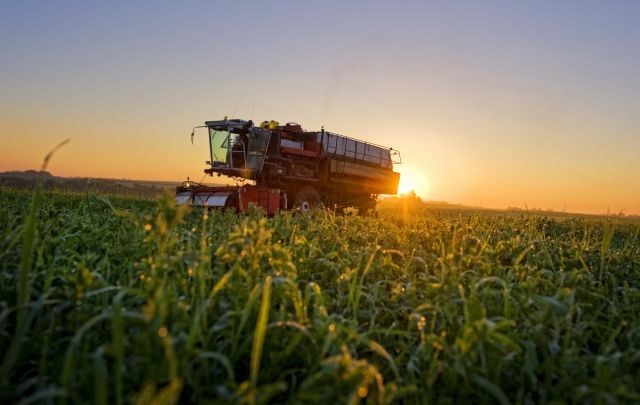
Combine crews are ready to harvest the moment each crop hits peak maturity, making Sno Pac’s frozen produce unbeatable in taste and texture.
“Our field crew, which is usually 4-5 of the guys on combine crews that go out to the field, they head out here at 4 o’clock in the morning and get to where they are going, get the combines fired up and warmed up, and get picking by 5 o’clock. Usually as soon as it is getting daylight they are getting started. We usually try to get stuff back here to the plant before 7 am so we can get started. So by 7 o’clock or quarter-to in the morning usually the peas are rolling in the door. When they get here, we start unloading the truck. That truck will take about an hour to unload.”
After they are unloaded, the produce is washed, sorted, inspected, blanched, and then it is down to the conveyor belt to the freezer.
“Depending on what the product is, it takes roughly 12 minutes to freeze it. In there, there are big fans that blow up through the product. It is the ammonia freezer and the ammonia temperature is like 40 below zero. That cold air blows up through the product and the product is really bouncing through there,” Pete smiles. “There are belts that carry it through the freezer, but it is bouncing as it goes through there so each piece is individually frozen and then it goes into the tote. It will hopefully pour out like warm water out of a pail. “
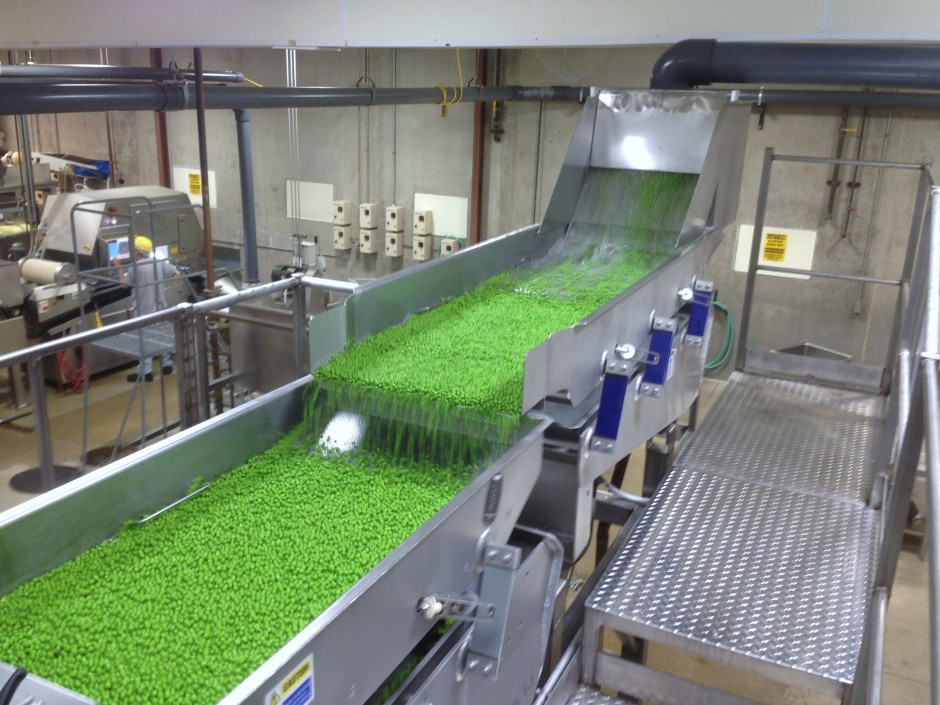
Peas roll down the conveyor belt at the Sno Pac factory. Each pea is washed, inspected, blanched and frozen straight from the field truck.
From there the produce is stored until it is ready to be packaged. Some go into 10 or 16 oz bags, destined for the shelves of retailers like Ferndale Market. Others fill 20-pound boxes to go food service or food manufacturers. “For example, Amy’s Kitchen gets a lot of green beans from us – almost 400,000 lbs of green beans from us that they use in their products,” says Pete.
As organic becomes a friendly word again, Pete continues to look back as the company moves forward. He hopes his customers experience the benefit of organic produce grown and produced by family-owned companies like Sno Pac Foods.
“Besides the fact that I always loved farming,” Pete mentions, “No matter what we have done and we have done a lot of different things over the years… it has always been about all the people that you meet and know and the friends you make along the way.“

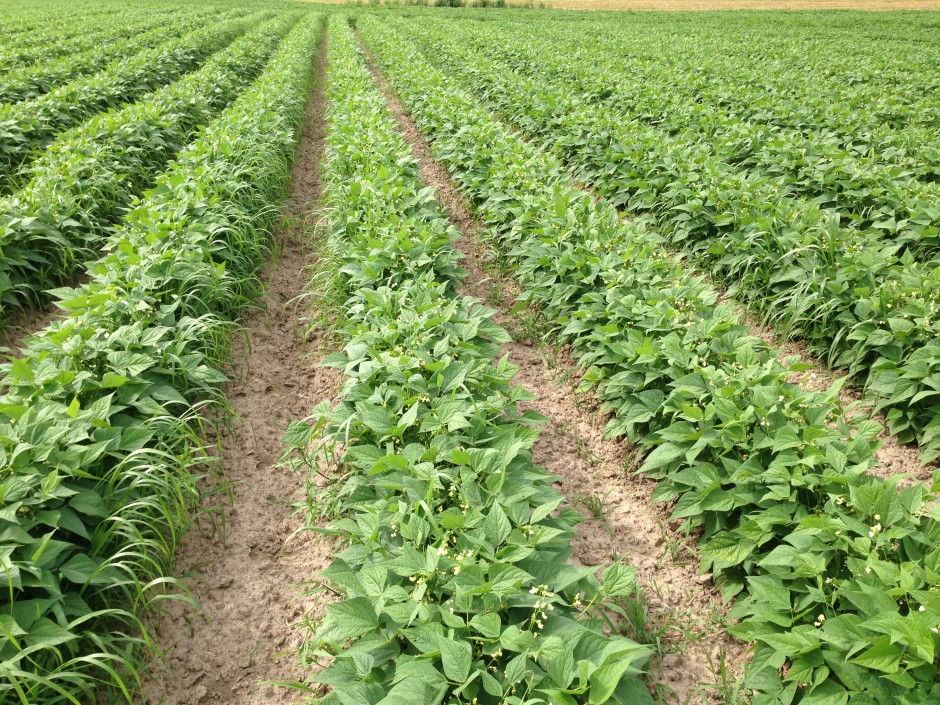
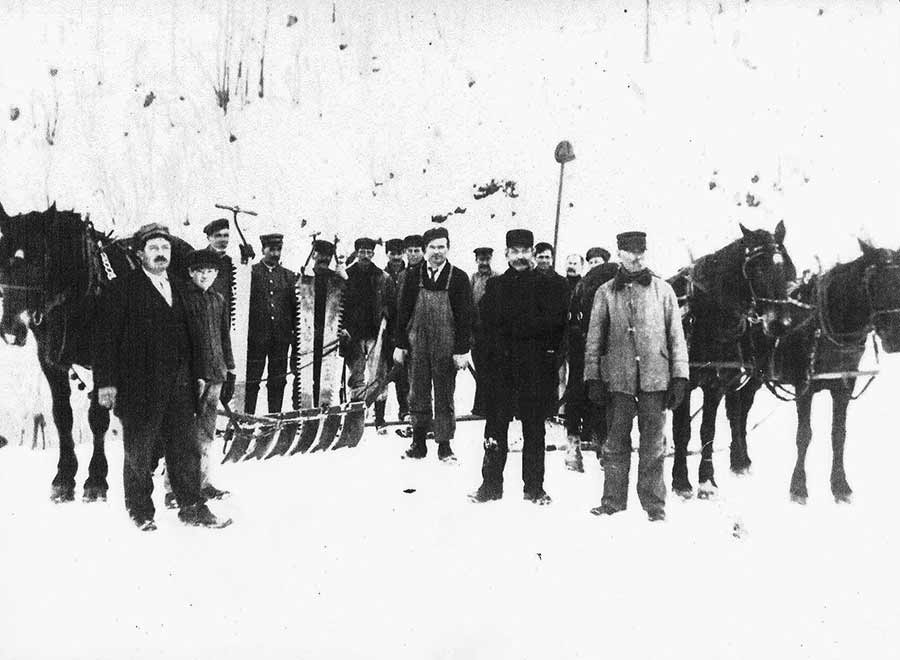
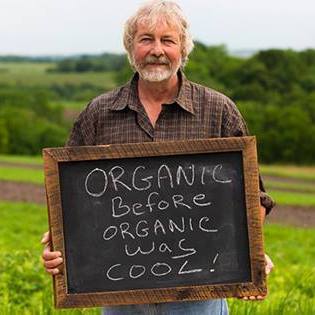
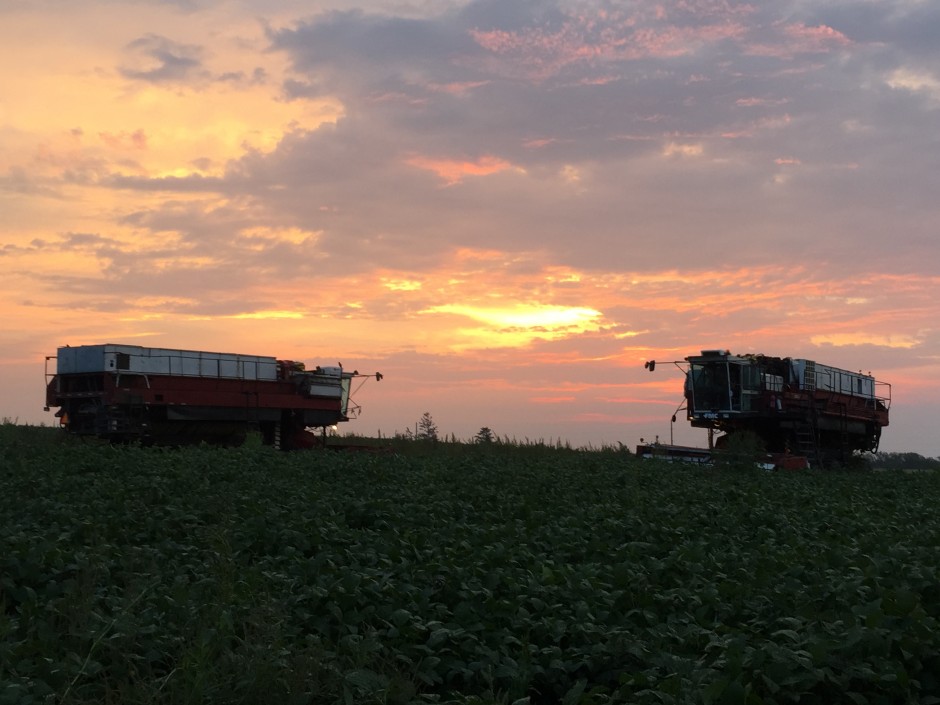
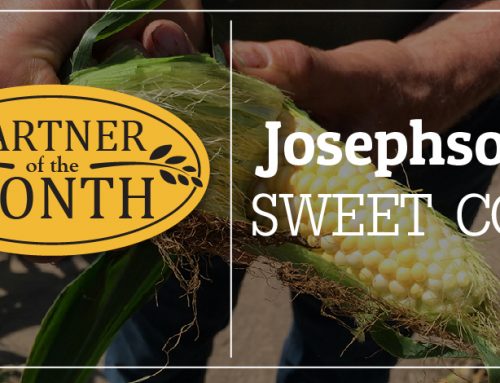
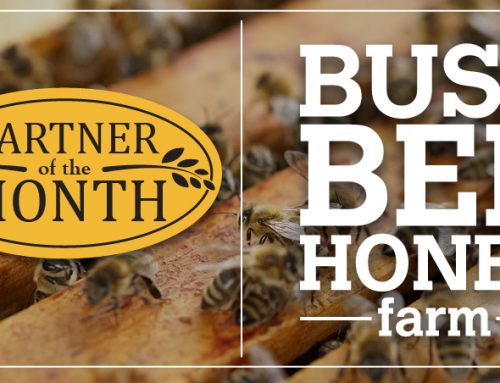
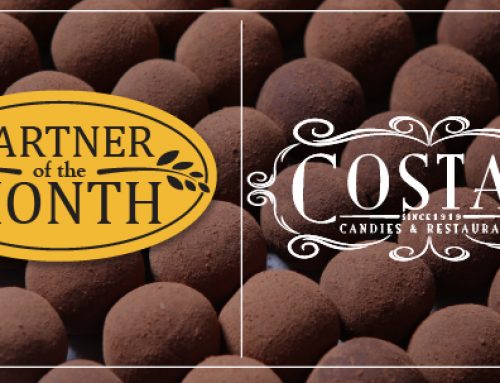
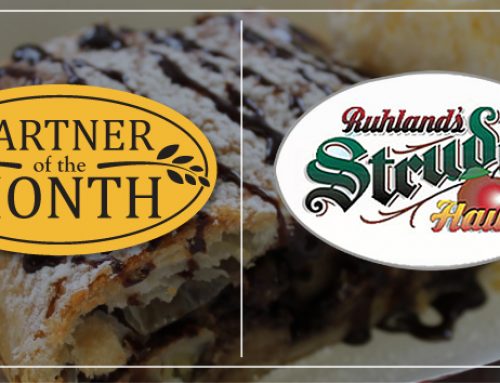
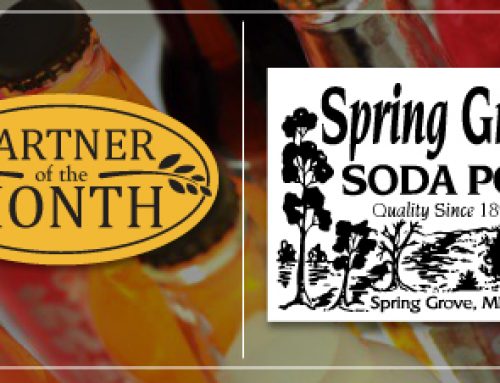
Leave A Comment